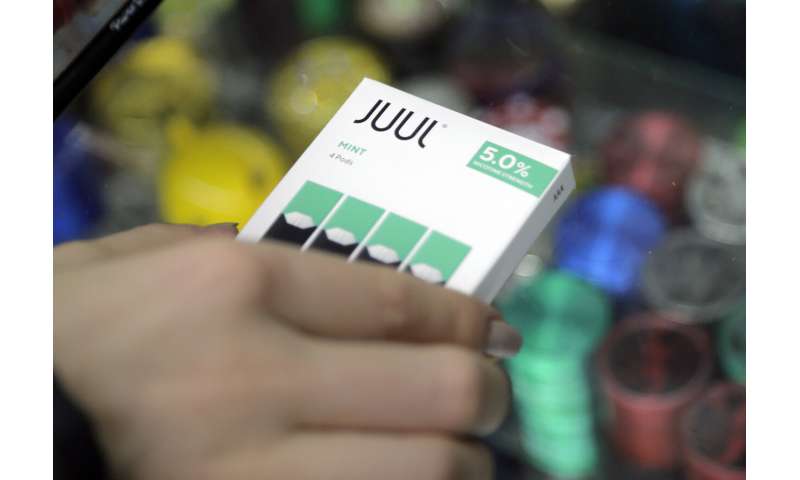

Juul Labs said Thursday it will halt sales of its best-selling, mint-flavored electronic cigarettes as it struggles to survive a nationwide backlash against vaping.
The voluntary step comes days after new government research showed that Juul is the top brand among high schoolers who use e-cigarettes and that many prefer mint.
“These results are unacceptable and that is why we must reset the vapor category in the U.S.,” said the company’s CEO K.C. Crosthwaite, in a statement.
Underage vaping has reached what health officials call epidemic levels. In the latest government survey, 1 in 4 high school students reported using e-cigarettes in the previous month, despite federal law banning sales to those under 18.
Under fire for its alleged role in sparking the vaping trend among teens, Juul has made a series of concessions to try and weather a crackdown from local, state and federal officials. It stopped selling popular fruit and dessert flavors in stores last year, and last month, stopped selling them online, too.
Earlier, the company replaced its CEO and pledged to stop advertising its products.
After halting mint sales, Juul will only sell menthol and tobacco flavors. Mint and menthol accounted for nearly 60% of the company’s retail sales in the past year, according to data compiled by Wells Fargo analyst Bonnie Herzog.
Fruit, candy, dessert and other flavored e-cigarettes have been targeted because of their appeal to underage users. Federal health officials are expected to soon release plans for removing most vaping flavors from the market.
In September, President Donald Trump said the flavor ban would include mint and menthol flavors. However, no details have yet been released, leading anti-vaping advocates to worry that the administration is backing away from its original plan.
Flavors are banned for traditional cigarettes in the U.S., except for menthol.
Juul is the best-selling e-cigarette brand in the U.S., but has been besieged by legal troubles, including multiple investigations by Congress, federal agencies and several state attorneys general. The company is also being sued by adults and underage Juul users who claim they became addicted to nicotine through the company’s products.
Source: Read Full Article